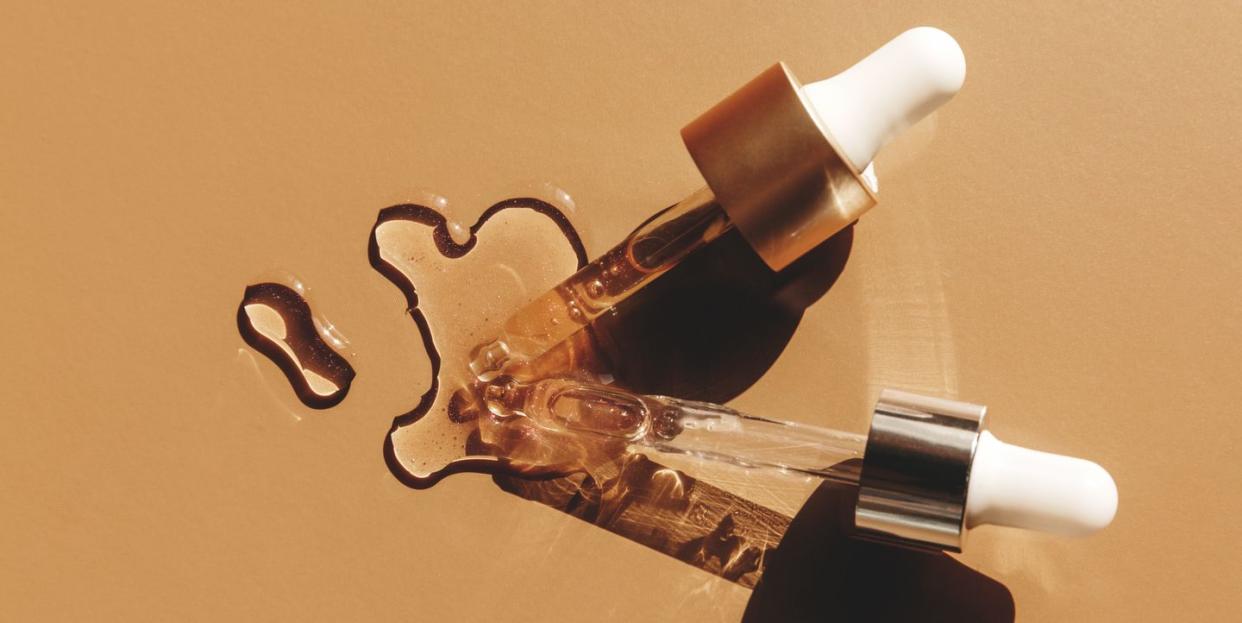Grapeseed Oil Is The Crowd-Pleasing Ingredient That Can Be Used On All Skin Types

On top of being a great snack, grapes actually have many uses. Sure, our favorite might be the form in which they're crushed and turned into wine, but the fruit also has properties that can benefit the skin. That's where grapeseed oil comes in.
Meet Our Experts: Dr. Karan Lal, DO, FAAD, double-board certified dermatologist and fellowship-trained cosmetic dermatologist, Dr. Joshua Zeichner, MD, board-certified dermatologist and, associate professor of dermatology, and the director of cosmetic & clinical research in dermatology at Mount Sinai Hospital in New York City.
As its name suggests, the oil is typically extracted from grapes and can be mixed into skincare products like serums, creams, and more since it's known for its hydrating benefits. It also has many other uses that experts approve of.
“Grapeseed oil [has] moisturizing, soothing, and skin-repairing benefits,” explains dermatologist Dr. Joshua Zeichner, MD. To learn more, we tapped some experts who shared a little more about the benefits of grapeseed oil and how to properly use it in your skincare routine.
What Is Grapeseed Oil?
Grapeseed oil is an oil that's—you guessed it!—extracted from grapes. It's packed with omega fatty acids and antioxidants that moisturize the skin, but dermatologists love it because it can mostly be used on all skin types with minimal side effects. “It also helps reduce redness and stimulate collagen,” says double-board certified adult and pediatric dermatologist, Karan Lal, DO, FAAD.
What Are The Benefits Of Grapeseed Oil For Skin?
While it can mainly be used to moisturize, soothe, and repair the skin, per Dr. Zeichner, grapeseed oil is also non-comedogenic (meaning it won't clog your pores) and acts as an antimicrobial that fends off bacteria that can cause breakouts and other conditions like rosacea and eczema. "This means it’s great for those with acne and also helps those with eczema and a defective skin barrier," Dr. Lal explains.
Dr. Zeichner agrees. “There is data showing that grapeseed oil has antimicrobial properties, so it’s used by some people as a natural remedy for conditions like athlete's foot or dandruff,” he says.
Some doctors also say that grapeseed oil can help reduce the appearance of fine lines and wrinkles, since it contains high levels of vitamin E, which protects against free radicals that can accelerate the aging process.
What Are The Side Effects Of Grapeseed Oil For Skin?
Grapeseed oil has very minimal side effects, and it's a very gentle option for people with sensitive and eczema-prone skin. Most skin types can use the oil free of worry, according to Dr. Lal, but as with any new ingredient, Dr. Zeichner suggests “to patch test yourself behind your ear for a few days before applying to the full face to make sure you can tolerate it.” And if you do develop a reaction to it, hold off on fully introducing it into your skincare routine.
How To Use Grapeseed Oil For Skin
These days, using grapeseed oil—or any ingredient, really—is pretty simple, since you can find it in dozens of skincare products. It works best on clean skin in your morning or night routine. If you're trying to fight acne or blemishes, you can also apply a few dabs of your favorite product containing grapeseed oil.
You Might Also Like
